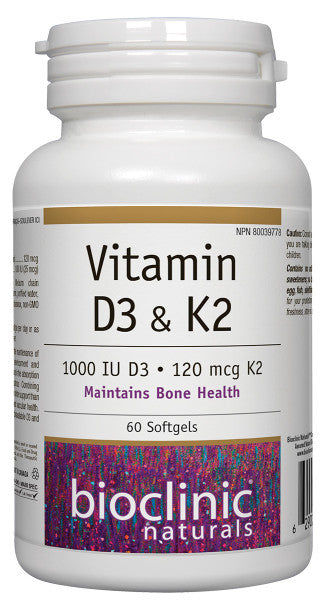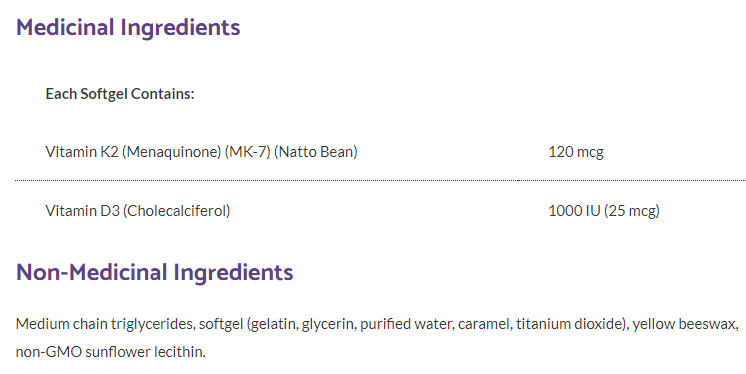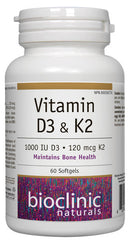



Vitamin D3 & K2 · 1000 IU D3 · 120 mcg K2
- 20.99$
0.00$- 20.99$
- Unit price
- per
Description
x- Provides clinically effective doses of vitamins D and K per capsule
- Vitamin D3 is the most potent in increasing serum and storage levels of vitamin D.
- Uses the optimal form of vitamin K, vitamin K2 menaquinone-7 (MK-7)
- MK-7 has the longest half-life and best extrahepatic distribution of all forms
- A combination of D3 and MK-7 has a synergistic advantage over single-nutrient therapy
Vitamin D and vitamin K have diverse and complementary physiological functions, close associations with chronic and age-related diseases, and a strong body of clinical evidence documenting widespread deficiency and therapeutic potential. Vitamin D has both hormonal and nonhormonal functions, with vitamin D receptors resulting in a myriad of physiological actions, ranging from bone metabolism to modulation of immune activity.
Vitamin D regulates the expression of hundreds of genes, influences cell proliferation and signaling, insulin production and sensitivity, and is a key inhibitor of several inflammatory pathways. Deficiency has been associated with increased cardiovascular disease, cancer risk, diabetes, and metabolic syndrome, as well as overall mortality.
Vitamin K-dependent (VKD) proteins are also present almost ubiquitously and regulate diverse functions, including cell growth, arterial calcification, and bone metabolism.12 Clinically, low intakes are associated with an increased risk of cardiovascular disease, diabetes, cancer, fractures, and a variety of other diseases that cause mortality. Vitamins K and D have complementary physiological functions, and clinical trials have shown synergistic benefits for osteoporosis and cardiovascular disease when used together.
Produits recommandés
Produits récemment consultés
- Choosing a selection results in a full page refresh.



